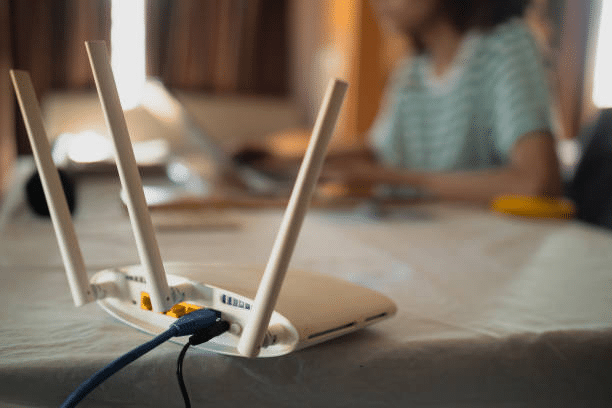Your internet goes down at the worst possible moment. You’re presenting in a video meeting, your kids are taking online tests, or you’re managing a client deadline from your home office. Suddenly, everything stops.
For most households today, internet connectivity isn’t optional—it’s essential infrastructure. Yet many homeowners still rely on a single connection, hoping it never fails. That’s where backup internet service for home becomes a game-changer.
This isn’t about luxury or paranoia. It’s about recognizing how much modern life depends on stable connectivity and taking practical steps to protect it. Let’s explore why backup internet matters for your home and how to find a solution that actually works.
The Real Cost of Internet Outages at Home
Internet outages disrupt more than just your Netflix stream. The impact ripples through multiple aspects of daily life, often in ways we don’t fully appreciate until connectivity disappears.
Work-from-home disruptions top the list for many households. Missing important meetings, losing access to cloud-based files, or watching deadlines slip away creates genuine professional consequences. When your employer expects you online, “my internet went out” sounds like an excuse, even when it’s completely true.
Remote learning challenges affect students of all ages. Online classes, virtual tutoring sessions, homework assignments requiring internet research, and educational platforms all grind to a halt during outages. Students fall behind, and parents scramble to find solutions.
Smart home vulnerabilities emerge when connectivity drops. Security cameras stop recording, smart locks become inaccessible remotely, and environmental controls lose their automation. These systems promise convenience and safety, but only when your internet stays up.
Entertainment and communication matter too. While less critical than work or education, staying connected with family, accessing entertainment, and maintaining household routines contributes to quality of life. Outages disrupt everything from streaming services to video calls with distant relatives.
The financial impact adds up quickly. Lost work hours, missed opportunities, and the stress of unreliability all carry real costs. Investing in backup internet service for home often pays for itself by preventing just one or two significant disruptions.

Understanding How Home Backup Internet Actually Works
Backup internet service for home operates on a simple principle: when your primary connection fails, a secondary connection takes over automatically. The transition happens quickly, often within seconds, keeping your household online.
Most homes rely on cable or fiber internet as their primary connection. These services generally perform well, but outages still occur because of equipment failures, network maintenance, weather damage, or infrastructure problems. Having a backup connection on a completely different network creates redundancy.
Automatic failover technology makes backup internet practical. Without automation, you’d need to manually switch connections every time an outage occurred—an impractical solution, especially if you’re not home or the outage happens during an important activity. Quality backup solutions detect when your primary connection drops and switch instantly.
Network diversity is key to effective backup. Using the same technology or provider for both primary and backup connections defeats the purpose. If a regional cable outage takes down your main internet, a cable-based backup will likely fail too. Smart backup strategies use different technologies or networks.
Bandwidth considerations matter differently for backup versus primary connections. Your backup doesn’t necessarily need the same speed as your main internet. Most essential activities—video calls, email, web browsing, and accessing cloud applications—function well on moderate speeds. This flexibility helps keep backup solutions affordable.
The goal isn’t replicating your primary connection perfectly. It’s ensuring that critical household activities continue functioning during outages, preventing disruptions that cost time, money, or opportunities.
Comparing Backup Internet Technologies for Homes
Several technology options exist for home backup internet, each with distinct advantages and considerations. Understanding these differences helps you choose the right fit.
5G wireless backup has rapidly become a leading choice for home backup internet service. This technology uses cellular networks to deliver internet without requiring cable installations. You simply plug in the equipment and you’re protected. Modern 5G networks offer impressive speeds and reliability, often comparable to traditional wired connections. Additionally, 5G backup avoids the lengthy installation processes associated with cable or fiber. Explore how 5G backup internet delivers fast deployment and strong performance for home protection.
Fixed wireless internet operates similarly but uses different radio frequencies and technologies. Availability depends on tower proximity and line-of-sight factors. Performance varies more than 5G but can work well in specific locations, particularly rural areas with limited wired options.
Secondary wired connections provide another path. If you have access to multiple internet providers using different infrastructure—for example, cable from one company and fiber from another—you can maintain both connections. However, this approach often proves more expensive and requires dealing with multiple providers and installations.
Satellite internet offers coverage almost anywhere, making it valuable for remote locations. Traditional satellite services come with higher latency that affects real-time applications, though newer low-earth orbit options are improving performance characteristics significantly.
Most homeowners find wireless backup solutions offer the best combination of reliability, cost-effectiveness, and ease of deployment. The ability to get protected quickly without installation appointments or infrastructure work makes wireless particularly appealing.
Essential Features Your Home Backup Should Include
Not all backup internet services deliver equal value. Focusing on these critical features ensures you get a solution that genuinely protects your household.
Seamless automatic failover stands as the most important feature. Manual switching isn’t realistic for most situations. Your backup should detect outages and transition connections without requiring any action on your part. Look for solutions that switch in seconds rather than minutes.
Adequate bandwidth for essential activities ensures your backup actually keeps you productive. Calculate what you need by considering simultaneous users and activities. Video conferencing typically requires 2-4 Mbps per stream, while general browsing and email need much less. A backup connection supporting 25-50 Mbps handles most household backup scenarios comfortably.
Reliable uptime on the backup network itself is crucial. A backup connection that frequently fails provides no protection. Research network quality and customer experiences before committing. The best backup uses infrastructure proven to maintain strong uptime even when other networks experience problems.
Simple setup and ongoing management make backup internet practical for non-technical homeowners. Solutions requiring complex configurations, special equipment, or technical knowledge create barriers. The most effective backup options work out of the box with straightforward setup processes.
Flexible service terms protect you from unsuitable long-term commitments. Monthly or short-term contract options let you adjust if your needs change or if you discover the service doesn’t meet expectations.
Responsive customer support becomes critical when issues arise. Quality providers offer accessible support channels and knowledgeable representatives who resolve problems quickly rather than leaving customers frustrated.
Evaluating Costs and Value for Home Backup Internet
Understanding the true cost of backup internet service for home requires looking beyond monthly fees to total value delivered.
Monthly service costs typically range from $30 to $100+ depending on speed, provider, and features. While this adds to household expenses, comparing it against potential costs of downtime often reveals strong value. A single lost work day or missed business opportunity can exceed months of backup internet fees.
Installation and equipment expenses vary significantly by technology and provider. Traditional wired backup solutions often involve installation fees, technician visits, and equipment purchases. Modern wireless options frequently eliminate or minimize these costs, offering plug-and-play equipment that arrives ready to use.
Contract requirements affect total cost and flexibility. Longer contracts sometimes offer lower monthly rates but lock you in regardless of satisfaction or changing needs. Shorter terms or month-to-month arrangements provide more freedom, though sometimes at slightly higher monthly costs.
Hidden fees and limitations deserve scrutiny. Some providers advertise low rates but add fees for equipment rental, installation, activation, or data usage. Others impose strict data caps that severely limit usefulness. Reading terms carefully prevents unpleasant surprises.
The most affordable backup internet service for home balances cost with genuine reliability. Paying slightly more for dependable service that actually works during outages delivers far better value than saving money on an unreliable backup that fails when needed.
How RingPlanet Delivers Dependable Home Backup Internet
At RingPlanet, we understand that modern households can’t afford extended internet outages. That’s why we’ve focused our backup internet for home solutions on reliability, simplicity, and real-world value.
We’ve seen how internet failures affect real families—from parents unable to work remotely to students missing virtual classes. These experiences shaped our approach to backup connectivity. We believe backup internet should be accessible to any household that depends on reliable connectivity, not just those with large budgets or technical expertise.
Our solutions emphasize practical protection over unnecessary complexity. We use proven wireless technology that eliminates installation headaches and reduces deployment time from weeks to days. This approach also removes many traditional cost barriers, making backup connectivity accessible to more homeowners.
We design our services around how people actually use internet at home. Most households need solid performance for work, education, and daily activities—not necessarily gigabit speeds or unlimited everything. By focusing on what genuinely matters, we deliver strong value without inflated pricing.
Quality support is built into our service, not treated as an afterthought. When homeowners contact us with questions or concerns, we respond with knowledgeable help focused on resolving issues quickly. We recognize that backup internet only provides value if it works reliably when needed.
Making the Right Backup Internet Decision for Your Home
Choosing backup internet service for home starts with honest assessment of your household’s connectivity dependencies. Consider these practical questions.
How often do internet outages occur in your area? Frequent disruptions make backup internet an obvious choice. Even if outages happen rarely, their impact might justify protection. One critical outage during an important presentation or test can cost more than months of backup service.
What activities absolutely require internet in your household? Remote work, online education, telehealth appointments, and security systems represent high-priority uses. Entertainment and general browsing, while valuable, matter less. Understanding your critical needs helps determine appropriate backup bandwidth.
What does downtime actually cost your household? Calculate lost work income, educational disruptions, and other measurable impacts. This calculation often reveals that backup internet pays for itself by preventing just one or two significant outages annually.
Which backup technology fits your situation best? Consider availability in your area, installation preferences, budget constraints, and performance requirements. For most homeowners, wireless backup solutions offer the strongest combination of reliability, affordability, and convenience.
Building Your Connectivity Safety Net
Backup internet service for home has evolved from a luxury for tech enthusiasts to a practical necessity for connected households. As we rely more heavily on internet for work, education, healthcare, and home management, protecting that connectivity becomes increasingly important.
Modern backup solutions have become remarkably accessible. What once required expensive infrastructure and complex technical setups now comes in affordable, user-friendly packages. Wireless technologies particularly have democratized backup internet, making protection available to virtually any household regardless of location or technical expertise.
The right backup internet doesn’t eliminate every inconvenience, but it prevents connectivity failures from derailing your day. You can attend that important meeting, complete time-sensitive work, ensure your children access educational resources, and maintain the smart home systems you depend on—all without worrying whether your internet will cooperate.
Investing in backup internet brings peace of mind. Instead of hoping your connection stays up during critical moments, you know you’re protected. That confidence alone often justifies the modest investment.
Ready to Protect Your Home’s Connectivity?
If you’ve experienced the frustration of untimely internet outages or you simply want to prevent connectivity from becoming a household vulnerability, exploring backup options makes sense.
At RingPlanet, we’re committed to delivering backup internet solutions that work for real households. We focus on what matters—keeping your family connected reliably and affordably, without unnecessary complexity or inflated costs.
Curious whether backup internet fits your household’s needs? We’re here to help you evaluate your options and find the right solution. Connect with our team and let’s discuss building the connectivity protection your home deserves.
1. Do I really need backup internet service for my home?
If your household depends on internet for remote work, online school, telehealth, or smart home security, backup internet is strongly recommended. Even short outages can disrupt work, education, and safety systems.
2. How does home backup internet work during an outage?
Home backup internet uses automatic failover. When your primary connection goes down, your network switches to the backup connection within seconds—without manual intervention or reconfiguration.
3. How fast should a home backup internet connection be?
Most homes only need 25–50 Mbps for backup internet. This supports video calls, cloud access, online classes, and essential browsing while keeping costs lower than a full primary connection.
4. What is the best type of backup internet for homes?
For most homeowners, wireless backup internet (4G LTE or 5G) offers the best balance of reliability, affordability, and easy setup. It works independently of cable or fiber outages and requires no installation.
5. Is backup internet expensive for homeowners?
Backup internet is usually affordable, especially compared to the cost of lost work time or missed opportunities. Many home backup plans cost less than the financial impact of a single serious outage.



